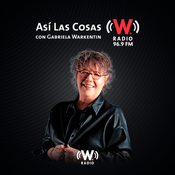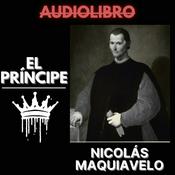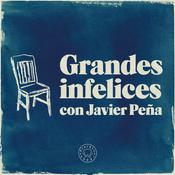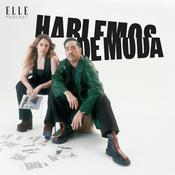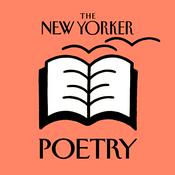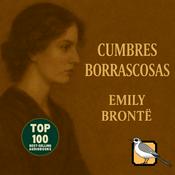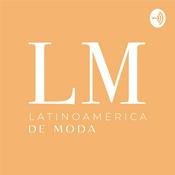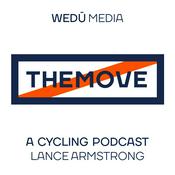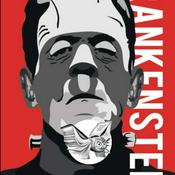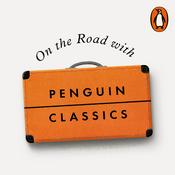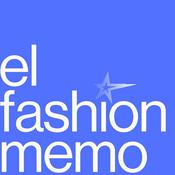14 episodios
- Hello, this is New Angle: Voice, the podcast about Pioneering Women in American Architecture brought to you by the Beverly Willis Architecture Foundation. I'm your new host, Alexandra Lange.
Our latest episode describes the creation and experience of the Women's School of Planning and Architecture, popularly known as WSPA, which ran for four summers from 1974 to 1979. It completes a trilogy of episodes, including previous ones on the fantasy environments of architect Phyllis Birkby and the first exhibition on Women in American Architecture at the Brooklyn Museum, that ask and answer the question, How did architecture meet the feminist movement in the 1970s?
WSPA was the brainchild of seven women, Leslie Kanes Weisman, Phyllis Birkby, Katrin Adam, Bobbie Sue Hood, Ellen Perry Berkeley, Marie Kennedy, and Joan Forrester Sprague. These women represented a mix of academic, professional, and practical experience. What they wanted to create was an educational curriculum, by women and for women, that freed architecture from the hierarchies of existing schools and practice.
At their workshops, held on a succession of college campuses, starting with St. Joseph's College in Biddeford, Maine, everyone was a student and everyone was a teacher. No one was passive. You could learn woodworking in the morning and feminist theory in the afternoon, and then let loose and make candy houses in the evening. Childcare was free, tuition was minimal, and the locations were scattered throughout the country, making it easy for interested parties to attend.
For many of the participants, it was their first experience of being the majority gender in a design classroom or architecture office. Even decades later, they remembered the experience with happy tears.
As with many collaborative enterprises with shoestring budgets, WSPA eventually dissipated, but not before giving a generation of women architects the tools (sometimes literally) to imagine a more communitarian world.
It sounds like a club I would definitely have liked to be part of. Without further ado, here is "Not Only Survive, but Flourish: The Story of WSPA."
__
Special thanks in this episode to Leslie Kanes Wisemen, Katrin Adam, Cathy Simon, and Paulett Taggart. And to the Smith College Special Collections, which houses all of the WSPA archives. You can see some incredible photos from this collection, including the Building Charades and Architecture Cakes, on our Instagram page at NewAngleVoice
This podcast is brought to you by the Beverly Willis Architecture Foundation and produced by Brandi Howell.
You can find other episodes of New Angle: Voice wherever you find your podcasts. And if you liked this episode, please leave a review and share with a friend. - Welcome to New Angle Voice: I'm your bi-coastal architect and host, Cynthia Phifer
Kracauer.
Catherine Bauer's life divided into two names and two geographies: her urban east coast youth, and her Bay Area soft landing. She hobnobbed with the bohemian elite of the interwar years….brilliantly charming the pants off of the big architect names of the Weimar Republic, Paris cafe society, and the International Style: Gropius, Mies, Corb, Oud, May…with her lover, Lewis Mumford—culminating in the publication of her 1934 classic : Modern Housing.
Her glamour and charismatic presence endeared her to trade unionists, labor leaders, and politicians, including five presidents—who she tried to turn to her vision of housing as a worthy responsibility of the government—sexier and leftier during the Depression. Her arguments were a harder sell in the red scare fifties and ran into a dreary deadlock in the suburban sixties, as she later wrote from her west coast stronghold at the University of California, Berkeley. In the Bay Area she developed an academic career that also included a husband, a daughter, and a house on the bay – all surrounded by the nature she quickly grew to love. Her legacy lives on to this day, as even the latest of housing legislation echoes the progressive ideals she was advocating for in her prime.
Hear now: Catherine Bauer Wurster: A Thoroughly Modern Woman.
Special thanks in this episode to Barbara Penner, Gwendolyn Wright, Sadie Super, Matthew Gordon Lasner, Katelin Penner, and Carol Galante. Archival recordings are from the UC Berkeley Bancroft Library.
This podcast is produced by Brandi Howell, with editorial advising from Alexandra Lange.
New Angle Voice is brought to you by the Beverly Willis Architecture Foundation. Funding for this podcast comes from the New York State Council on the Arts.
You can find other episodes of New Angle: Voice wherever you find your podcasts. And if you liked this episode, please leave a review and share with a friend. - We continue our throw-back to the seventies, and take a deeper dive into the many facets of the women's movement that impacted the practice of architecture.
Pushed to the side and rarely credited for her architectural work at Davis Brody, Phyllis Birkby became a significant figure in extending the lesbian women's movement to architecture during the 1970s. Her environmental fantasy workshops played a crucial role in galvanizing the community, providing a creative and empowering space within a male-dominated profession.
Growing out of other consciousness raising techniques, freed up in her classes, Phyllis released the rigor of her conventional training to get down on the floor, and lead the group in sketching their fantasies however outlandish on giant rolls of butcher paper. She encouraged the women to imagine architecture above, below, and beyond the norm.
Birkby's work not only contributed to architectural discourse but also fostered a sense of collective identity among lesbian architects, highlighting the intersectionality of gender, sexuality, and professional identity in the field. In her later years, she focused on architecture for people marginalized in other ways – by addiction, by age, and by disability, again imagining spaces of community and support.
Welcome to Beyond Architecture: The Fantasy Worlds of Phyllis Birkby
Special thanks in this episode to Stephen Vider, MC Overholt, Gabrielle Esperdy, Matthew Wagstaffe, Leslie Kanes Weisman and the Smith College Special Collections.
This podcast is produced by Brandi Howell, with editorial advising from Alexandra Lange.
New Angle Voice is brought to you by the Beverly Willis Architecture Foundation. Funding for this podcast comes from the New York State Council on the Arts. - That was some party. Even though I didn't make it to the splashy opening, I did attend the transformational exhibition at the Brooklyn Museum, our subject in this episode. A rarely used sculpture gallery was filled with ranks and files of cheap drafting tables, their tops tilted to display what seemed to be pages out of the book, one spread to a table. It overwhelmed with information—but seemed void of the chatter of us working women.
Welcome to New Angle Voice, I'm your host, Cynthia Kracauer. In this episode, we revisit the first significant effort to publicly tell the under-told stories of American women in architecture: "Women in American Architecture: A Historic and Contemporary Perspective." On view at the Brooklyn Museum from February-April of 1977, the groundbreaking exhibition and simultaneous book, curated and edited by Susana Torre, clearly defined the state of play for women in the architecture profession. Alienated by the profound hostility expressed by the AIA, women architects found an accepting cohort at the Architectural League of New York. We organized. We canvassed. We raised our consciousnesses. The project team identified subjects so previously obscured as to be unknown, and then with the energy and drive of a furious mob, they broke through and laid the groundwork for scholarship, social change, and recognition of women architects for the next fifty years. Get your consciousness raised: listen to our voices. Here's "Laying the Groundwork: Women in American Architecture, Spring 1977."
Special thanks in this episode to Susana Torre, Andrea Merrett, Suzanne Stephens, Cynthia Rock, Deborah Nevins, and Robert AM Stern.
This podcast is produced by Brandi Howell, with editorial advising from Alexandra Lange. Thanks also to production assistants Virginia Eskridge and Aislinn McNamara.
New Angle Voice is brought to you by the Beverly Willis Architecture Foundation. Funding for this podcast comes from the National Endowment for the Humanities, the National Endowment for the Arts, and the Graham Foundation.
We are beginning our third season, and hope that if you have followed our progress, that you will want to continue to support our ongoing efforts to tell women's stories of challenge, struggle and success. Visit our website to make a contribution. www.bwaf.org. Architecture, Family Style – The Lives and Work of Sarah Harkness and Jean Fletcher
20/12/2023 | 44 minSarah Pillsbury, or Sally as she was better known by her peers, and Jean Bodman were both architects who married architects. As an architect who also married an architect, my perspective may be more inside baseball on the professional side, but utter awe and fascination on the family end.
I'm Cynthia Phifer Kracauer, architect, Executive Director of the Beverly Willis Architecture Foundation, mother of only two, and your host. Welcome to our last episode of New Angle Voice 2023.
It's hard to look at the early days of TAC—the Architects Collaborative—for a time a world-class firm founded by two husband/wife couples and a handful of their classmates … with Walter Gropius thrown in to give them the gravitas that concealed their youth—without a bit of nostalgia. Nostalgia for the naïve progressive ideology, nostalgia for that post World War 2 hope that the world could be remade through architecture—after all, Europe was rubble—and utter amazement that the firm fared as well as long as it did. TAC was admired by women of my generation who saw two women partners with 13 children between them, garnering design awards, winning competitions, and acting on a world stage with far flung offices and impressive civic and institutional work. For goodness sakes the National American Institute of Architects hired them for their new headquarters! What could be more iconic.
Soon after the founding of the firm in 1947, Sarah and Jean wrote an article for House & Garden titled "Architecture, Family Style" which – as their biographer Michael Kubo writes – constituted something of a manifesto for the changing needs of the postwar housewife. But as we all know, sometimes youthful dreams don't pan out.
In this episode, we revisit the utopian fantasy that the Architects Collaborative built and take a look inside. "Architecture, Family Style – The Lives and Work of Sarah Harkness and Jean Fletcher".
Special thanks in this episode to Sara Harkness and Joseph Fletcher, Michael Kubo and Amanda Kolson Hurley. Current Six Moon Hill residents Linda Pagani and Barbara Katzenberg kindly opened their homes and shared their stories. Long time TAC partners Perry Neubauer and Gail Flynn were generous with their time as were Andrea Leers and Jane Weinzapfel. The archival oral history of Sally Harkness comes from her interview with Wendy Cox.
This podcast is produced by Brandi Howell, with editorial advising from Alexandra Lange. Thanks also to production assistants Virginia Eskridge and Aislinn McNamara.
New Angle Voice is brought to you by the Beverly Willis Architecture Foundation. Funding for this podcast comes from the National Endowment for the Humanities, the National Endowment for the Arts, and the Graham Foundation.
Más podcasts de Arte
Podcasts a la moda de Arte
Acerca de New Angle: Voice
Beverly Willis is adding her voice to a new podcast featuring discussions about the lives and careers of female pioneers of American Architecture. Going beyond the scholarship of the award-winning website Pioneering Women of American Architecture, our podcast New Angle: Voice details the struggles and triumphs of six leading women who have personified achievement in a primarily male dominated field.
Sitio web del podcastEscucha New Angle: Voice, Service95 Book Club With Dua Lipa y muchos más podcasts de todo el mundo con la aplicación de radio.net
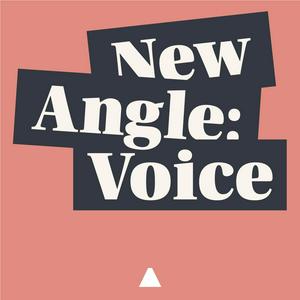
Descarga la app gratuita: radio.net
- Añadir radios y podcasts a favoritos
- Transmisión por Wi-Fi y Bluetooth
- Carplay & Android Auto compatible
- Muchas otras funciones de la app
Descarga la app gratuita: radio.net
- Añadir radios y podcasts a favoritos
- Transmisión por Wi-Fi y Bluetooth
- Carplay & Android Auto compatible
- Muchas otras funciones de la app


New Angle: Voice
Escanea el código,
Descarga la app,
Escucha.
Descarga la app,
Escucha.




